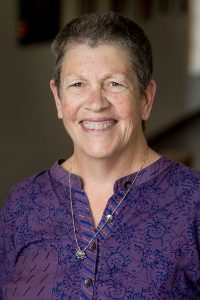By Jonathan Holloway, Program Coordinator
Over the last two weeks, OFD was pleased to welcome both of our Spring 2020 Reading Circle authors for guest expert webinars. On April 21 and 22, Dr. Thomas J. Tobin presented Three Ways to Support Students during COVID-19 Remote Instruction, and on April 28 and 29, Dr. Cia Verschlden presented Bandwidth Depletion and Recovery in COVID-19 Remote Learning.
Three Ways to Support Students during COVID-19 Remote Instruction

In this webinar, Dr. Tobin built upon many of the principles of Universal Design for Learning (UDL) that he discussed during his keynote address at our 2020 Teaching and Learning Symposium, and how they can be applied to online instruction as we head towards Summer I and II. He focused on three areas:
- Access: For Dr. Tobin, this includes not only access to course materials, but also access to classmates, the instructor, and the wider world.
- Assessment: Dr. Tobin reminded attendees that lowering students’ anxiety can reduce the temptation to cheat, and offered some strategies to do so.
- Inclusion: Giving students a sense of belonging, choice, a voice in their classes, safety, and control over their circumstances increases retention.
You can view a recording of Dr. Tobin’s webinar at this link. You will need to login with your NC State Unity credentials.
Bandwidth Depletion and Recovery in COVID-19 Remote Learning

Dr. Verschelden’s webinar focused on the concept of mental bandwidth, as discussed in her book Bandwidth Recovery. She discussed how the COVID-19 pandemic has created uncertainty for our students including lost wages, stress, uncertain work schedules, childcare and home-schooling, illness, and technology barriers. This uncertainty is a drain on mental bandwidth. To counter this uncertainty, we need to provide our students with certainty. Some strategies Dr. Verschelden provided to do this are:
- Communication: early and often
- Regular class times: If you’re holding synchronous sessions, don’t ask students to be online at times when your class wasn’t originally scheduled.
- Clear expectations: Make sure students know what they need to do to be successful in your course
- Assurance: Make sure students know you understand that they may not have the best technology or be fully equipped to take online classes.
- Grace: Stick to the syllabus and give clear deadlines, but be willing to have some flexibility and give grace periods.
You can view a recording of Dr. Verschelden’s webinar at this link. You will need to login with your NC State Unity credentials.
Are you interested in making your courses more inclusive? Applications will open on Monday, May 4, for the summer cohort of OFD’s |RED| Inclusive Teaching Certification! Make sure you are subscribed to the OFD Newsletter so you can be among the first to find out.